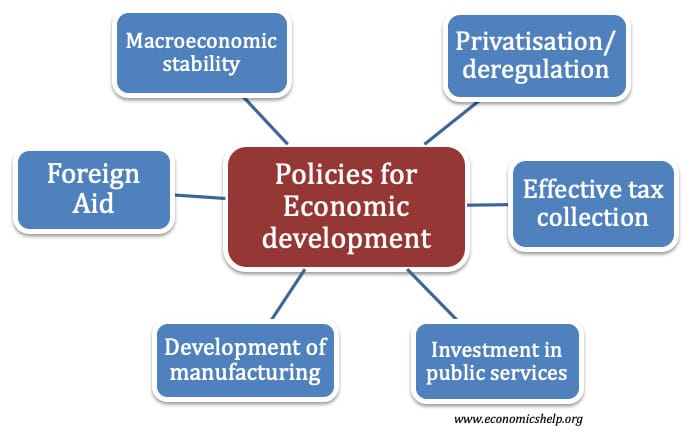By Oghale Mafuru
Since 2015, the Federal Government under the President Muhammadu Buhari administration has introduced several economic recovery and sustainability initiatives with focus to achieve its Sustainable Developmental Goals of lifting 100 million Nigerians by 2050. Whether this projection is achievable or not, is precipitated by the current economic concerns compounded by the COVID-19 pandemic, Endsars protest, inflation rate and so on.
The nation is at a point where it needs to drive a structural economic transformation agenda with emphasis on improving both public and private sector efficiency which aims to increase national productivity and achieve sustainable diversification of production.
While the government blames the current economic hardship on the many years of inappropriate policies, fiscal leakages and inefficient spending of previous administrations, it has reiterated its resolve to take actions that will fundamentally change the structure of the economy and the way government business is conducted.
However, in a bid to stimulate the economy and launch it on a path of sustained long-term growth, the Federal Government initiated programmes like the Economic Recovery and Growth Plan (ERGP), Anchor Borrowing Scheme, and other Social Development programs. The ERGP program was expected to provide macroeconomic stability with low inflation rate, stable market exchange rate and sustainable fiscal and external balances.
President Buhari, while speaking about the ERGP, called for all concerted efforts in achieving the much-needed economic growth through the program. He said: “The success of this plan will depend largely on its effective implementation, including effective coordination of its implementation amongst all stakeholders at national and subnational levels.”
While all these projections look good on paper, the challenge over time has been the issue of implementation. The reality on ground is saddening. With rising inflation rate now at 17.93%, exchange rate now at between 503/ 409 naira to a dollar, dwindling foreign reserves, soaring unemployment rate and so on. The indices clearly show that the odds are against the country.
Recently, Nigeria’s Federal Executive Council approved yet another economic programme, the Poverty Reduction with Growth Strategy (NPRGS). A scheme they say will accelerate the reduction of poverty through economic growth, social protection programs, and others.
The NPRGS, which was necessitated by the rise in poverty and inflation that has caused hardships for Nigerians, rest on four pillars – namely: macroeconomic stabilisation, industrialisation for growth transformation, structural policies and cultural reforms and redistributive policies and programmes.
Poverty is one of the forces militating against the social and economic development of Nigeria. The level of poverty in Nigeria is astronomically high amidst daunting economic statistical records.
The NPRGS report says that over the 10-year programme period (2021-2031), the total cost of the execution/implementation of the policies and programmes is estimated at US$1.6 trillion. In the report of the Presidential Economic Advisory Council (PEAC) the process needed to implement and achieve their plans include Macroeconomic Stabilization Policies which is gear towards the implementation of sound macroeconomic policies, reduction of the risks of economic disruption while providing an environment for the smoother transmission of economic policies as well as serve as a catalyst to incentivize private sector investment and consumption.
Commenting on the impact of the policy on the economy, Economic Analyst, Ugo Aliogo, said the policy is a good one but the challenge is that whether the policy will make the necessary impact on the economy, noting that previous policies didn’t transcend to increased economic productivity in terms of increased production in the manufacturing sector and businesses citing implementation as a major factor.
He said: “Under the macroeconomic stabilisation aspect of the policy, one of the recommendations of the Presidential Economic Recovery team was that there is need for a unified and competitive exchange rate because our currency has nosedived. It cannot stand the dollar and it is affecting importation and exports as well.”
He added: “We now have to look at improving the inflationary rate from double digits to single digit because as it is double digits, what happens is that purchasing power is very low. When purchasing power is low, it means that people cannot meet their basic needs.”
Also speaking, Economic and Maritime Specialist, Dr. Abraham Ekperusi while acknowledging that failure of some of the previous economic policies is implementation, stated: “One thing I will say is that there is nowhere in the world you will see 100 percent policy implementation across all government sectors or government spectrum. Policy sometimes yields the desired outcome and some of them are abandoned along the way. There are several factors; some could be finance, or difficulty in implantation. Some could be bureaucracy or might even be the people. The people may not fully understand the policy and could lead to its failure”.
According to him, programmes like Anchors Borrowers Programs and the Social Investment program have yielded some positive outcomes. He expressed hope that the new Poverty Reduction Policy of the Federal Government will address the various economic concerns. He urged all stakeholders to compliment the efforts of the FG as it is critical to the realisation of the Economic Sustainability Plan for the country.
The Economic Recovery and Sustainability agenda of the FG will undoubtedly impact businesses as the main index for growth in increased economic activities. However, while hope is rekindled again with this new initiative, it is key that all and sundry work assiduously for the success of this initiative.






Comment
No comments found.